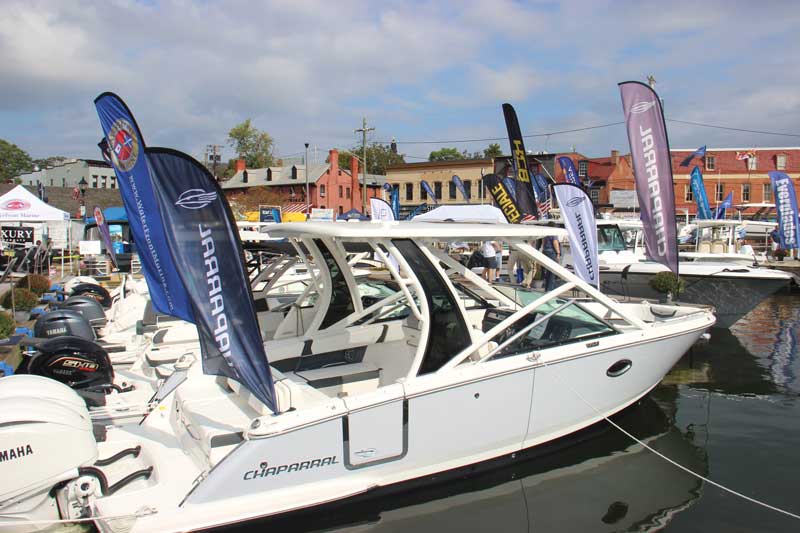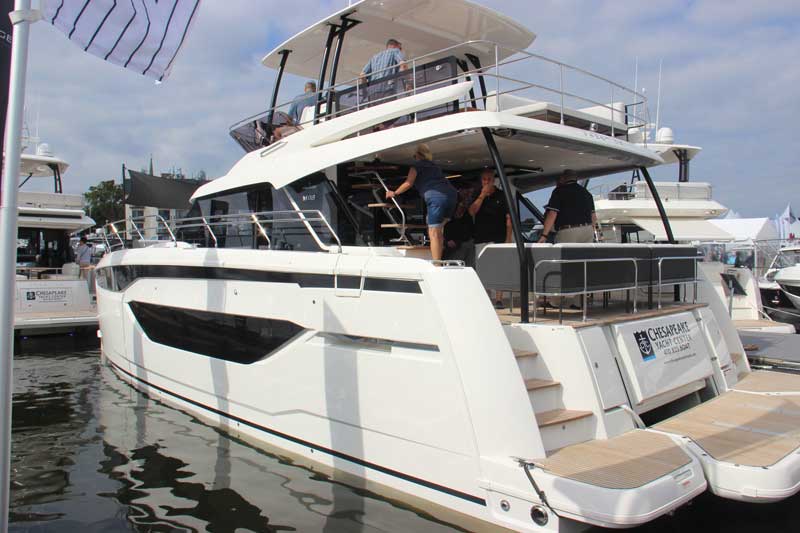If you’re thinking of buying a boat but don’t know where to start, don’t worry. The process isn’t as daunting as it seems and there are plenty of resources to help along the way. Here are 10 quick tips to make it easy.

1. Identify the right boat. Are you looking for a classic, sailboat, powerboat, tow-sports boat, catamaran, pontoon, or fishing boat? This is the most critical step of the purchase, so give it lots of thought.
2. Decide on new or pre-owned. When buying new, you’ll work with a dealer who will represent select brands in his dealership and will guide you through the process. If you don’t see what you want on the showroom floor, chances are you can order a custom model. If buying at a boat show, you’ll work with a dealer, although some boat builders sell direct.
When buying pre-owned, you may work with a broker who will have a variety of brands and can also guide you through the process. Look for brokers who are certified in your state as well as by CPYB and YBAA. Brokers represent either the buyer or seller and on rare occasions both, as in real estate. Brokers are usually compensated via a fee that is based on a percentage of the selling price. The standard is 10 percent and that’s paid by the seller, not the buyer. If there are brokers on both the selling and buying side, they split the commission.
Private sellers are good sources for smaller boats, but you’ll need to tackle more issues on your own including doing in-depth research and pricing comparisons. Try BoatTrader or Craigslist for small boat values (and you can also visit PropTalk’s Boats for Sale pages in the back of the magazine, as well as at proptalk.com/boats-for-sale). Unless you’re familiar with a particular brand of boat and are confident that you can assess its condition, private purchases can be tricky, but they make up the largest percentage of the boats purchased and sold each year.
3. Set a budget to determine how much you can afford. Consider the total cost of ownership including upgrades/options, registration, insurance, maintenance, and storage of the boat. The total cost of boat ownership can sometimes be 20 percent or more of the initial purchase price.
Finding comparable values for specific models should be easy when buying new. For pre-owned boats, you may need to check the blue book equivalent for boats called BUC values or try various private seller sites for similar boat listings. You can search by type, model, age, or location to learn what should be a fair price range for your purchase.

4. For best value, try buying off season or consider buying last year’s “new” model at a deep discount at the dealership.
5. Decide if you’ll finance the purchase. Dealers often provide financing options.
You can usually find a list of dealers on a boatbuilder’s website, and you’ll want to find one that’s nearby, so you have somewhere to turn to for future service needs.
Brokers selling pre-owned boats usually have a list of marine lenders they’ll share. If you work with a private seller, try Google for a list of lenders who specialize in marine loans.
6. Find an insurance company that specializes in marine insurance before taking possession. The cost will depend on the size, type, value, and age of the vessel as well as your experience as a boater. Some companies won’t insure boats over 15-20 years old. Human powered vessels (kayaks, dinghies without a motor, etc.) don’t need to be insured.
7. Try before you buy. With new boats, that’s easy because a dealer will put you aboard the same or similar model for a test drive. With a large brokerage boat, you’ll need to make an offer before doing a “sea trial” which is what the test of a pre-owned boat is called. This is to deter tire kickers and people who just want a day on the water but have no intention of buying the boat.
With a private seller, you’ll need to negotiate a test on local waters. Running the outboard in a bucket of water in their driveway won’t cut it.
For a pre-owned boat, pay for a survey which is done by a qualified marine surveyor or mechanic who checks out the boat and all its systems. There are online directories of marine surveyors or get a recommendation from other boaters or your broker. Some charge per time and some per foot of boat length.

8. Dive into the paperwork which can be voluminous, confusing, and archaic. Some boats will be documented with the U.S. Coast Guard while others may be registered via the DMV. Specific boats like high-risk racing boats or vessels put in a trust will require specialized knowledge and there may also be tax implications, so lean on your dealer, broker, and lender for guidance.
9. Don’t overbuy. First time buyers tend to buy bigger boats than they need and ones that are loaded with complicated equipment that’s bound to break at some point. Unless you’re handy and know that you’ll have a big crowd on every outing, err on the side of smaller and simpler.
10. Negotiate from a rational mindset rather than emotion. Boats tend to make people emotional, but boats can also represent a significant investment, so buy with your head, not your heart. Do a walkthrough, check comparable values online, and negotiate extras with a dealer. Be reasonable and rational and refuse to be intimidated.
Purchasing a boat can be a long process, so be sure to take your time at each step and become knowledgeable about what you want and where to get it. The “how to buy” process is the easiest part with lots of parties to help along the way. Happy shopping.
By Zuzana Prochazka